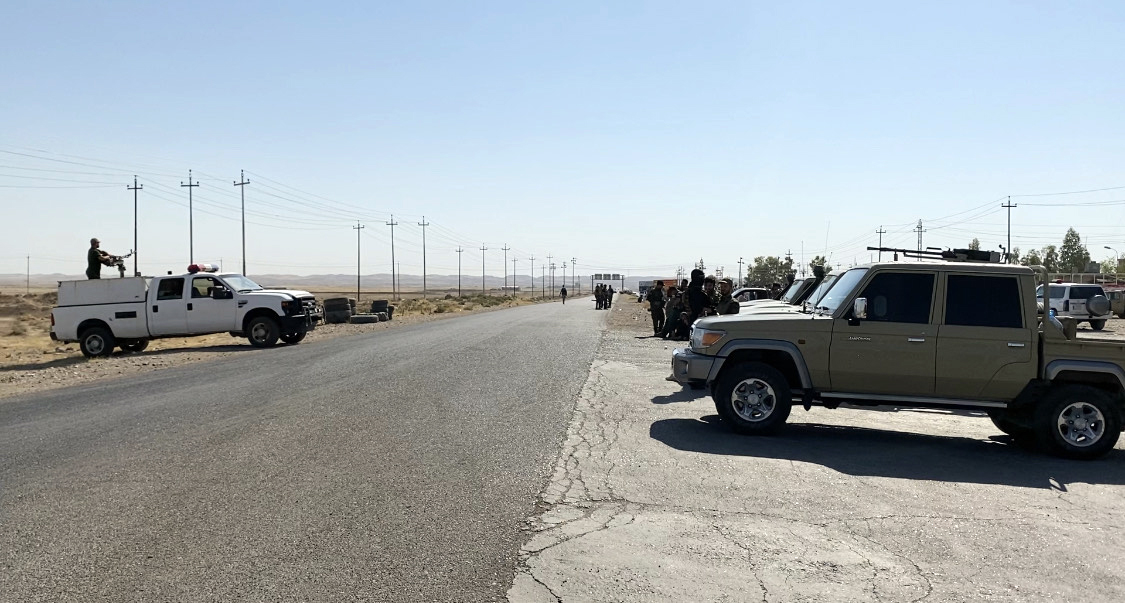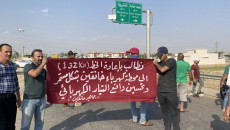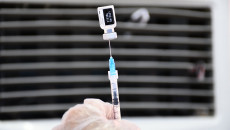The national power is down for days in three towns northeast of Baghdad by a militant strike, local officials told KirkukNow.
At the early hours of July 31st, militants attacked Unit Five of Iraqi army deployed adjacent to Halwan bridge, in the middle of Khanaqin-Jalawla highway. Four Iraqi soldiers were killed and the main tower of power transmission in rhe region was damaged.
The tower strike left tens of thousands of residents of the sub-districts f Sa’diya, Jalawla and Qaratapa of Diyala province without national power since then, mainly relying on few hours of electricity provided by private diesel generators.
The targeted tower was transmitting electricity to the three sub-districts which is “an unstable triangle full of valleys and hills making it difficult to control thus occasionally targeted by Daesh militants despite the guards deployed by the towers,” said Wasfi al-Timimi, mayor of Qaratapa.
All necessary equipment is provided to fix the power and resume power transmission once its installed soon, he added.
IS militants are regrouping in the rural areas of the disputed territories between Baghdad and Erbil. They are targeting Iraqi forces and civilians in the suburbs of Diyla, Kirkuk Ninawa and Erbil, leaving tens of casualties and causing material damage to power plants, oil wells, houses, cattle, orchards and vehicles of the villagers.
The disputed territories extend from Khanaqin in the east on the border with Iran to the oil rich city of Kirkuk heading to the west of Mosul in Shingal, home to Ezidi ethno-religious minority, on the border with Syria.
Last week, a man was killed, his son was abducted and his nephew was injured by unknown gunmen in Sa'diyah sub-district, 60 km north east of Baquba, center of Diyala province.
In retaliation, a wide range of operations are launched in the disputed territories have failed to put an end to the escalating threats. End of May, the Iraqi security forces have launched a joint operation to sweep riversides of Alwand river in Kahanqin, northeast of Baghdad, targeting hideouts for remnants of the Islamic State ISIS.
The operation followed a 7-week campaign covered the river of Sirwan and the surrounding areas of Jalawla subdistrict, particularly the village of Islah, a safe haven for IS militants. 7,000 donums of agricultural lands and orchards were dried in the campaign in order to leave no chance for the extremist Jihadists to take shelter there.
Diyala operations' command is an umbrella to local and federal police, Iraqi army and PMF in charge of the security of Diayala province.
The locals are suffering as national power which was provding 15-18 hours of unlimited consumption can not be replaced by private generators heating up in baking summer as temperature passes 45 degrees midday time. The generators hardly can earn 15-16 hours of of limited power.
“Sometimes the generators shut it down midnight and we are obliged to sit outside. Our patients are really suffering and the food and meat in our refrigerators has damaged,” said Shino Mohammed, a resident of Talia neighborhood of Jalwla sub-district.
“Besides, we can not afford paying for generators to buy more amperes and turn on more electrical cooling appliances,” she added. “We have only four amperes so how we can get enough cold water?”
Mohammed has paid 13,000 Iraqi Dinars IQD ($9) for an ampere while the national power is ten times cheaper.
Iraq's electricity ministry has cited a number of causes for the prolonged and widespread cuts including terrorist attacks on electricity lines, shortages of fuel for power stations, and the suspension of energy supplies from neighboring Iran.
Ahmed Samir, mayor of Sa’diya and acting mayor of Jalawla, said currently the people depend on private generators which cannot supply sufficient power for long hours and “we cannot hold them accountable and people spend long hours without electricity.”
“We call on the Iraqi government to increase diesel portion for private generators asap so that they provide more power to people till the tower is fixed,” he added.
The three sub-districts are part of Diyala province and home to Arabs, Kurds and Turkmens.
Iraqi ministry of electricity follows the standard structure of power generation, transmission then distribution, where every stage of the delivery process is also segmented into regions, each region has a separate company. Iraq is divided into four regions: the south, the middle and upper Euphrates or midlands, Baghdad, and the north.
In 2019, Iraq's gas and thermal power plants generated only 70% of the demand for electricity, local and international studies have shown. Besides, Iraq imports 1200 MW through four lines from its neighbor Iran, 300-400 from Turkey and 200 Mw from Jordan.







